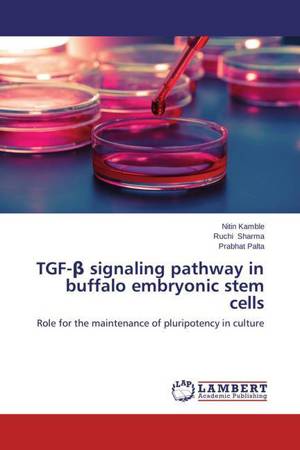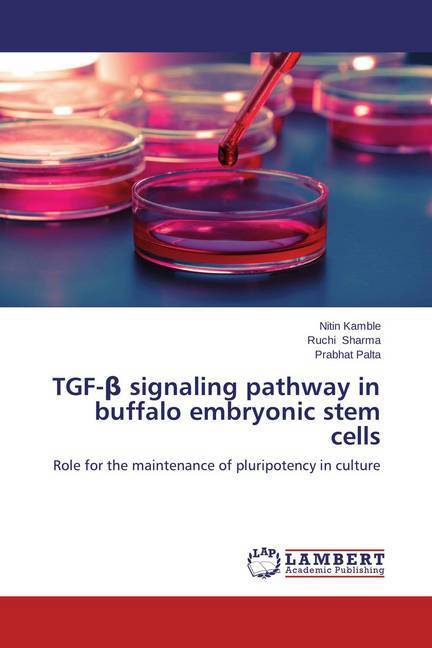
- Afhalen na 1 uur in een winkel met voorraad
- Gratis thuislevering in België vanaf € 30
- Ruim aanbod met 7 miljoen producten
- Afhalen na 1 uur in een winkel met voorraad
- Gratis thuislevering in België vanaf € 30
- Ruim aanbod met 7 miljoen producten
Zoeken
TGF-beta signaling pathway in buffalo embryonic stem cells
Role for the maintenance of pluripotency in culture
Nitin Kamble, Ruchi Sharma, Prabhat Palta
Paperback | Engels
€ 44,95
+ 89 punten
Omschrijving
ES cells have very many varied applications for farm animals as well as humans, like enabling studies on the fundamental events in embryonic development, production of therapeutic delivery systems, gene targeting, and regenerative medicine. Production of pluripotent ES cells from farm animal species will have a big influence on the genetic modification of these animal species. Availability of ES cells is expected to be especially useful in cloning technology. Also, in the context of gene targeting, use of ES cells could overcome current limitation on efficient gene transfer by providing an abundance of stem cells to be genetically manipulated by using conventional recombinant DNA techniques. Very limited information is available on the signaling pathways that govern the self renewal of ES cells while maintaining them in an undifferentiated and pluripotent state. Among other important regulators, members of the transforming growth factor-beta (TGF-beta) super-family.
Specificaties
Betrokkenen
- Auteur(s):
- Uitgeverij:
Inhoud
- Aantal bladzijden:
- 60
- Taal:
- Engels
Eigenschappen
- Productcode (EAN):
- 9783659555756
- Verschijningsdatum:
- 22/10/2014
- Uitvoering:
- Paperback
- Afmetingen:
- 150 mm x 220 mm
- Gewicht:
- 100 g

Alleen bij Standaard Boekhandel
+ 89 punten op je klantenkaart van Standaard Boekhandel
Beoordelingen
We publiceren alleen reviews die voldoen aan de voorwaarden voor reviews. Bekijk onze voorwaarden voor reviews.








